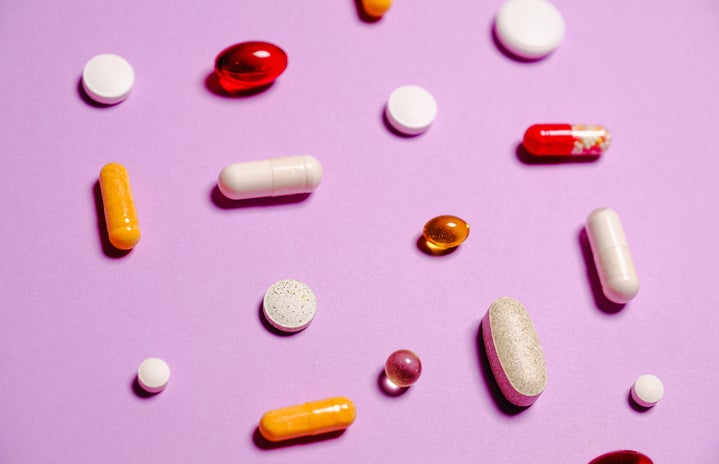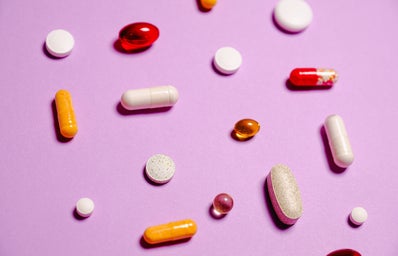When the ’70s and ’80s came around most drugs were seen as glamorous due to the glorification of it in rock n’ roll culture. Culturally that may have been true but to the government, drug usage was becoming a big problem. To combat this, in 1971, President Nixon declared a “war on drugs.” Whether it was by increasing the amount of funding that went to the federal drug control agencies or endorsing mandatory sentencing and no-knock warrants, it was clear that Nixon wanted all “druggies” off the streets and into prison cells. Even Nixon’s domestic policy advisor stated, in a book published in the 1990s, that they “‘knew [they] couldn’t make it illegal to be either against the war or black, but by getting the public to associate the hippies with marijuana and blacks with heroin, and then criminalizing both heavily, [they] could disrupt those communities. [They] could arrest their leaders, raid their homes, break up their meetings, and vilify them night after night on the evening news. Did [they] know we were lying about the drugs? Of course [they] did (nationalpress.org).”” The war on drugs wasn’t truly about drugs; instead, a war was against POC in America, especially black people. Furthermore, it was a war against people who believed in different values and strayed from the pure and patriotic American way. After Nixon declared this policy, and later when Reagan continued to push this narrative, it became clear that it wasn’t working. Drug usage continued to rise as well as the creation of new drugs. The result of this policy was the engraining of more systems of racism and oppression in America. During Reagan’s presidency, incarceration rates of POC skyrocketed and slogans such as “Just Say No” and “D.A.R.E” became popularized. LA Police Chief Daryl Gates even went as far as to say that “casual drug users should be taken out and shot (drugpolicy.org).” Beliefs such as this created media frenzies surrounding drug usage and scared more of the public despite only “2-6% of Americans,” believing drugs were America’s “number one problem (drugpolicy.org).”
In the present day, these outdated policies still hugely affect us in various ways but one of its relatively new impacts is on mental health research and experimental treatment. Now that we as a society actually recognize that mental health illnesses exist and aren’t made up, many doctors have been hard at work finding multitudes of treatments. The main path of treatment for those with anxiety, depression, and PTSD has been SSRIs, other medications, and therapy. For some, this isn’t enough. New reports from patients have come out that experimenting with the microdosing of psychedelics as a form of treatment truly works. The main psychedelic used is LSD or psilocybin which can positively impact myriad mood disorders. Though no official clinical studies have been completed due to the restrictions such as Schedule 1 restrictions among other drug laws. Though no clinical studies have been allowed to start, organizations in the U.K. such as the Drug Science Medical Psychedelics Working Group have been focusing their attention on creating an evidence-based foundation for sensible and effective drug laws that would not only allow for the testing of LSD for mood disorders but also show the world that clinical psychedelic research is a promising field worth the time and examination.
When it comes to PTSD, users have reported the same benefits reported by people affected by mood disorders. Yet the difference is that there has been some animal testing done with psilocybin: “There is some evidence in animal studies to show that psilocybin, the psychedelic compound found in “magic mushrooms,” may act by stimulating nerve cell regrowth in parts of the brain responsible for emotion and memory. A 2013 study from the University of South Florida found that psilocybin stimulates neurogenesis—the growth and repair of brain cells in the hippocampus, which is the brain’s center for emotion and memory. In the study, mice that were given psilocybin overcame fear conditioning far better than mice that were given a placebo. The study supported the hypothesis that psilocybin can help break the traumatic cycle that occurs in patients with PTSD (med.nyu.org).”
As a society, I think we need to continue to move forward and keep an open mind when it comes to treating all mental illnesses. Every individual will need a certain treatment plan that another individual with the same illness might not need. But treatment through psychedelics, even though minimal testing has been done, has shown serious benefits and improvements without side effects, while common treatment methods such as SSRIs have a long list of side effects. In this case, the benefits outweigh the downsides. But unfortunately, the government has the final say. And as of right now they are not keen to give clinical research for mental illnesses a free pass for psychedelic usage.


